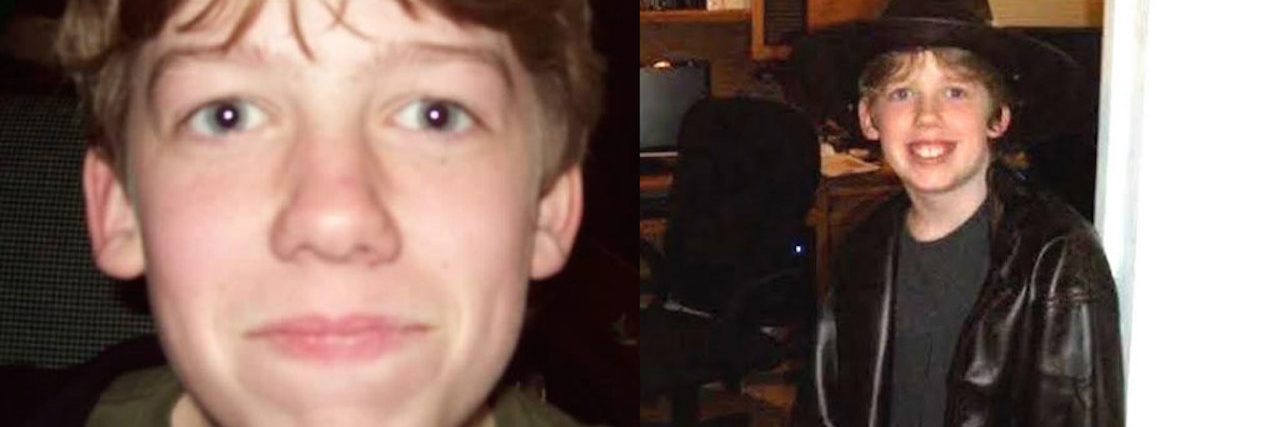Editor’s note: If you experience suicidal thoughts or have lost someone to suicide, the following post could be potentially triggering. You can contact the Crisis Text Line by texting “START” to 741-741.
When Tom died, I was thankfully referred to the Compassionate Friends website. There is lots of insightful information that helped me navigate the first few months. In addition, the site has great resources for friends and family about how to talk with someone about a child’s death. But the site did not cover some of the situations that have arisen on our journey.
Many loved ones reached out with the best intentions, trying to find a way to connect with and assist us while dealing with their own grief and fears about loss. So please understand, I write this from a place of love, not judgment, in hopes you will never need to use the information.
1. When you use the words, “committed suicide,” I hear, “died while committing a crime.”
Please use the now accepted phrasing “died by suicide.” This description is true to the situation and is less painful to hear. Whether suicide is a crime in the law books or not, I don’t want to liken my son’s death to a crime.
2. When you ask me, “How did he do it?” I hear, “The details of Tom’s death are more important than the impact of Tom’s life.”
When you ask me that question, it takes me back, in horrible Technicolor detail, to the moment I first saw Tom’s lifeless body. I already struggle every moment to erase that image from my mind, so why would you want me to revisit it to quench your curiosity?
3. When you say, “Did you see any signs?” I hear, “You failed as a parent because you were not aware.”
If we had seen the signs, we would have acted. We loved Tom so much we would have done anything to help him. Each of us spent quality time with Tom. We had both serious and hilarious conversations with him on a regular basis. We had daily and weekly traditions that helped us connect with Tom. He masked his pain well from his family and friends, sparing us all from his dark struggle.
4. When you say, “Why did Tom do it?” I hear, “Are you the reason Tom died?”
The truth is we don’t know why this happened. Tom left a note, but there were no specifics to pinpoint exactly what happened or if there was some inciting incident. We are grateful for the narrative he left behind because he allowed us some insight into his mental state, but we do not know what brought him to that act at that moment. And if we did know, I am not sure we would want to discuss it with others. More often than not, there is no note, which I expect leaves even greater pain and emptiness. Occasionally a note may indicate the suicide was meant to hurt others, and in that case, I believe no one would want to share that information.
5. When you ask, “What would you have done differently?” I hear, “You are at fault for Tom’s death.”
I can’t imagine any parents who do not wish they could rewind and revise how they handled situations with their children. Are there things I would have done differently over the years? Yes. Would they have made a difference? I don’t know. Asking me these questions sends me into a tailspin of “what-ifs.” What-ifs are the bargaining part of the grief process I am desperately trying to move past.
Instead of asking me these questions, honor Tom and me by sharing stories or showing me pictures or videos of him, whether they are new to me or not. Allow me to take the lead in sharing details of his death. If I am ready to tell you, I will. But that time might never come. Instead tell me of your sadness and your fears, allowing our tears to fall together. Knowing he lives on in others’ memories strengthens me and helps me find peace with our loss.
If you or someone you know needs help, visit our suicide prevention resources page.
If you need support right now, call the National Suicide Prevention Lifeline at 1-800-273-8255 or text “START” to 741-741.
We want to hear your story. Become a Mighty contributor here.
Photo via contributor.

